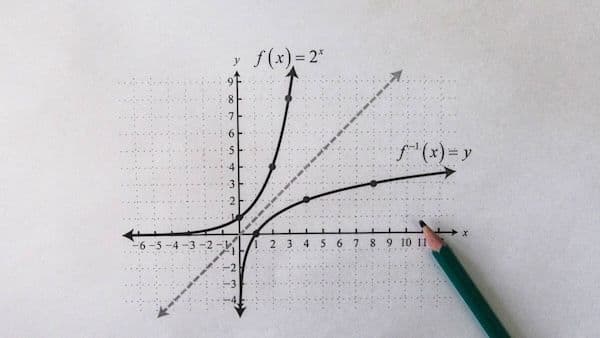
SAT Quick Review: What to Know Before Test Day
Panicking before the SAT? Here’s your last-minute SAT quick review with practical strategies from SAT expert Katya Seberson.

Photo by 佳叶 范 on Unsplash
Why You’re Here: Last Minute SAT Tips
Your SAT is coming up. You’re down to days - or even hours - before the test, and the panic is setting in. We first want to reassure you: pre-test nerves are NORMAL. Anxiety around big events - such as the SAT - is a perfectly appropriate response. But that doesn’t mean you can’t reinforce what you know and take some time to decrease your anxiety (at least a smidge). Our last minute SAT tips come straight from our Head of Test Prep at Ivy Tutors Network - and SAT guru - Katya Seberson. We’ll walk you through morning-of SAT advice like normalizing pre-test nerves and adjusting your mind set. And if you’ve got a few days yet, our last minute SAT advice includes what to review and prioritize. No miracles here - just a solid SAT quick review.
SAT Quick Review: The 3 Paths You Might Be On
1. You’re Anxious but Prepared
Let’s go back to what we said above. Anxiety is normal. It means everything is going according to plan because you should feel nervous about doing important things: giving a speech, performing in a play, and, yes, taking a high stakes test. So first, reassure yourself that anxiety is not a bad thing in this scenario.
Second, teach yourself this mantra: “I may not know all the answers, but I’m confident in my ability to figure it out”. This is a multiple choice test intended to challenge you. Katya teaches all Ivy Tutors Network students that they should anticipate - and even plan on - seeing something they’ve never seen before. College Board is constantly testing out new question types, so even if you’ve prepared extensively, you’re going to see something new.
Third, on the morning of the SAT, wake up your brain and get it ready for the area you’re the worst at. If your worst section is reading, get up in the morning and read a couple of passages. If it’s math, do some math exercises (if you’re a current IVY student, do some math chops trials). It doesn’t matter how well you do on the activity you choose; you’re waking up the part of the brain that does that thing, which primes it to do the activity come test time.
Fourth, focus on the mind body connection with some intentional breathing and visualization exercises. These are great for just before the test, but you can use them any time in the days leading up to the test to calm your brain and body.
Our top recommendations?
- Imagine yourself in a place that makes you feel safe and comfortable and then practice 2 minutes of box breathing.
- Listen to your favorite song on repeat. Not only will it calm you, it evokes positive emotions and allows you to access your prefrontal cortex (the part of your brain responsible for logical reasoning, problem solving, and decision making).
The bottom line is that if you’ve prepared for the SAT, your job in the days and hours leading up to the test is to focus on quieting the nonsense anxiety tries to tell you. Pre-test jitters are normal. Remind yourself of the mantra, wake up your brain, and calm your nervous system. You got this.
2. You Feel Unprepared (i.e. What to Know for the SAT)
If you feel unprepared because you haven’t done as much test prep as you’d like, but you’re a strong student, you can triage topics for last minute SAT prep. We recommend picking your weaker area (math or reading & writing) and spending your time there. We go into greater detail below, but speaking in very general terms, if math is your weaker section, focus on studying linear equations, and if reading & writing is your weaker section, spend your time learning grammar rules.
Additionally, if it’s the night before - or even the week before - we don’t recommend trying to learn anything truly new to you: it’s not likely to stick. Instead, focus on things you’ve seen before and learned in the past, but where review would help. Jump down to the section titled “Smart Last-Minute SAT Prep for Each Section” for more specific recommendations from Katya.

Photo by Solving Healthcare on Unsplash
3. You Think You’re Doomed
This might not be what you’d like to hear, but one of the most helpful things you can do for yourself right now is lower your expectations. If you’re not good at test taking and you haven’t put in the time to prepare for the SAT, you’re probably not going to do as good as you’d like. (And if you’re telling yourself you’re doomed but it’s just your brain lying to you, go back up to our suggestions in #1.) Here are a couple of things to consider.
- You’re probably not going to see any of the really hard things you’re worried about. If you’re bad at math and haven’t been intentionally preparing for the math section, you’re not likely to see the hardest questions because you won’t do well enough on the first module to get the harder second module. (If you’re not sure what we’re talking about, you probably missed that the SAT became an adaptive test; read more here). Only students who had a perfect or near perfect first module will be presented with the math questions students typically worry about (circles, trigonometry, probability).
- Focus on effort, not perfection. At this point, your last minute prep for the SAT should be about mental preparation. Do things that stop the spiral so you’re not coming into the test in your worst possible headspace. Focus on effort, and avoid perfectionistic and black and white thinking.
- Make a plan to retake. You could absolutely do better than you expect. But we’d encourage you to put less pressure on yourself for this first take and then plan to retake in 3-6 months. If you’re taking this as a Junior in high school, you should absolutely have enough time to better prepare for a retake - or even two!
Going into a test as important as the SAT feeling like you're doomed is not a nice feeling. At this point, however, you cannot control how you’ll do on the test in any meaningful way. Instead, take back control in the areas you can: your self-talk/mental chatter, and your ability to plan for the future. Think past this taking of the SAT and do better for the next one.
Smart Last-Minute SAT Prep for Each Section

Photo by Antoine Dautry on Unsplash
SAT Math Quick Review
If you’re here, we’re assuming you’re short on time and performing triage - which means you can’t focus on everything. For last minute SAT prep in math, the “biggest bang for your buck” is to focus your review on linear equations - they make up 33% of the SAT math score on average. This includes not just graphing lines, but interpreting slope and intercepts, working with different forms (like point-slope and standard), and analyzing word problems with linear models.
Once you're confident with linear equations, move to quadratic equations: standard form, factored form, and vertex form. If time allows, glance at exponential functions. But to reiterate our point above, do not look at anything that’s new to you. With only a short review window, put your effort into truly reviewing, rather than learning.
Do not waste your time on low-frequency topics like trigonometry, probability, or circle geometry—these only appear in advanced modules, which are served only to students who perform near-perfectly on the first module.
A last minute test taking strategy that can support your success in the math section is to beware of the “middle step” trap. The “middle step” trap in math questions is when multiple steps are required to answer the question and among the answer choices is a number you'll reach part way through your calculations. Make sure to fully complete all the steps. Always re-read the last sentence and make sure you’ve solved for what the question is asking. The test is designed to bait quick responders who don’t double-check, so re-reading prevents errors.
Last Minute SAT Reading Tips
If reading is your area of struggle, there are not a lot of last minute strategies that will truly get you up to speed. Reading comprehension, like all learning, is iterative. To truly improve you need to be reading everyday (that’s why 20 pages a day of challenging content is mandatory in our SAT prep programs!). However, on the day of the SAT, one of the things you can do to help yourself is the warm-up activity we mentioned earlier. Activitate, or “warm up,” the right part of your brain by reading a few passages right when you get up. These could be practice SAT passages, or a few paragraphs from an intellectual source like The Economist, The Atlantic, or The New Yorker.
A last-minute test-taking strategy that can support you: when tackling SAT Reading, remember you’re not choosing what sounds right, you’re choosing what’s provable. You should be able to point to the evidence in the passage that supports your answer. This is true even for inference questions. If you can’t find the evidence in the text, then it’s not the right answer.
Another strategy we teach our students? If time is running out, don’t linger on double passages (i.e. questions that present two related passages - usually on the same topic but from different perspectives - and ask you to analyze each passage individually as well as how they relate to each other). Double passages are time-consuming and unlikely to help your score if you're rushing. Instead, pick an answer and move on. The SAT only counts answers when the system is confident you knew them; lucky guesses don’t boost your score.

Photo by Thought Catalog on Unsplash
SAT Grammar in a Hurry
Grammar is a typical area of weakness for students who perform worse in the verbal section. By the time you’re taking the SAT, however, you should have seen all the grammar rules several times throughout your school career, making them a good spot for last minute review. Prioritize commas with names, colons, and transition words. These are rules you can review quickly and often show up in repeatable formats.
Whatever you do, don’t rely on ChatGPT for grammar explanations. It's not SAT-aware and tends to explain questions like isolated cases rather than patterns. You want to think like the test-maker (which is the opposite in many ways of a language model).
The Power of the Post-Test Voice Note
If you’re planning to take the SAT again - either because it’s been a part of your plan all along or because you’re expecting to bomb this take - Katya recommends one simple, truly powerful thing you can do immediately upon exciting the testing center. Find a quiet (ish) spot, open a voice note on your phone, and ask yourself this question: What do I wish I had more training in? In other words, what did you struggle with that you could learn?
Using a post-test reflection is an excellent way to build a smarter plan. Asking the question in this way also follows a growth mindset. You’re not using the time to beat yourself up or burst into tears. While those are both perfectly normal reactions to something going poorly, they’re not going to help you think about the future. Answering this question will.
Chances are, if you did poorly, it’s going to come across in the voice note. That emotion - remembering that painful moment - can also act as a catalyst when you listen to it again, as it will remind you that you don’t want to feel that way again and that there are steps you can take to avoid it.
Want Real SAT Prep? Start Now
Listen, if you’re headed into the SAT and you know it’s not going to go as well as you hope, now is the time to find an SAT prep program. There are not enough last minute SAT tips to get you from where you are to where you want to be. But 3-6 months of targeted learning can.
Ivy Tutors Network SAT Test Prep programs focus on knowledge gaps, strategy, and understanding how you learn so you can compensate for your areas of weakness. Learning is iterative - it’s why 3+ months is exactly the right amount of time to truly learn the information and strategies you need to improve your SAT score. Sign up today.




